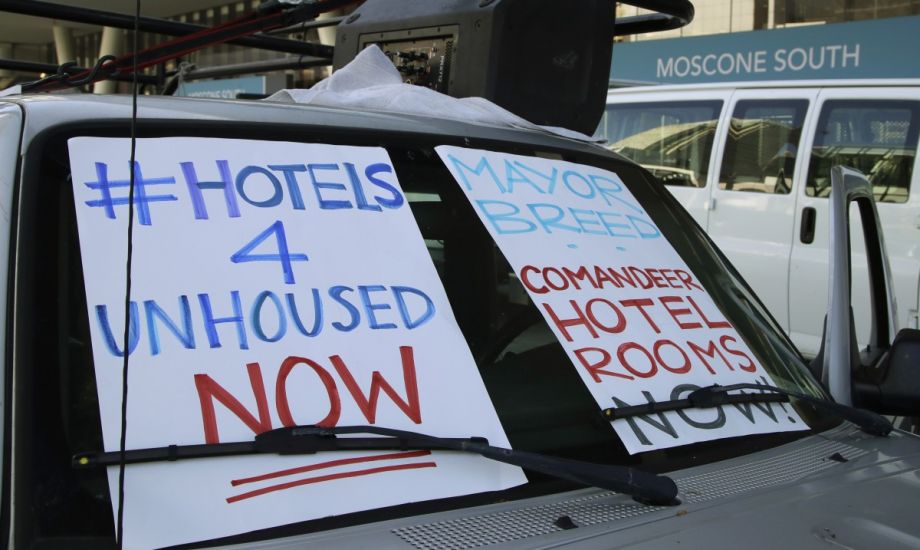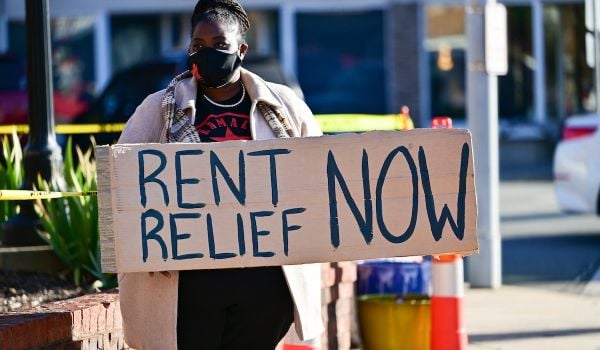Cities Leave Federal Emergency Homelessness Funds on the Table
Only a small fraction of cities have taken advantage of federal emergency funding to house people experiencing homelessness during the COVID-19 pandemic, according to a report on Grist.org. The Federal Emergency Management Agency (FEMA) has been directed to reimburse cities for costs under both the Donald Trump and Joe Biden administrations, the report says. The reimbursement program is available through a 1988 law called the Stafford Act, with no cap on how much can be reimbursed.
But to date, Grist found through Freedom of Information Act requests to the federal government, only 23 jurisdictions have applied for reimbursement, totaling about $600 million in requests. According to the report, only three of the cities in the top ten for rates of homelessness applied for reimbursement, according to the report. And among the cities that have not sought funding are New York, San Francisco, and Washington, D.C., all three of which have more than 90 people experiencing homelessness for every 10,000 residents.
The report found that “poor governing relationships between federal and local governments, a difficult reimbursement process, and decentralized planning left the program to be largely ignored.”
“It’s a failure at the federal level to not get [the money] out to the cities, because they know which cities need it the most,” John Beard, a former city councilmember in Port Arthur, Texas — a state in which no jurisdiction applied for FEMA reimbursement — told Grist. “And it’s a failure by cities for not amplifying their needs and making the requests.”
The program is set to expire along with other coronavirus relief programs on September 30, the report says.
California Governor Proposes $12 Billion for Homelessness
California Governor Gavin Newsom announced a plan to spend $12 billion to fight homelessness in the state, calling the scale of the investment “unprecedented in American history,” according to a report in the San Diego Union-Tribune. The proposal would “provide housing for 65,000 people and stabilize housing for more than 300,000 people who have difficulty paying rent or are facing other housing challenges,” according to the report. The bulk of the investment, some $7 billion, would go to expanding Project Homekey, an emergency program the state enacted with federal stimulus money last year to convert hotels into permanent housing. That program so far has invested $1 billion and created 6,000 permanent units, according to the Union-Tribune.
The proposal also includes $1.75 billion to build new affordable housing, $447 million to combat state university and community college student homelessness, $1.6 billion for rental assistance, and other investments, the report says. California has more than 160,000 people experiencing homelessness, according to a recent report, and the population of unhoused people grew by 7% in the year prior to the pandemic. Newsom’s proposal seeks to end family homelessness in California over five years, according to the Union-Tribune.
The announcement was made in the context of a $75.7 billion state budget surplus in California, according to the report.
Ithaca Adopts Green Building Code
The Ithaca Common Council in Ithaca, New York, adopted a green building code this week that requires buildings to reduce the amount of energy they consume, according to a report in The Ithaca Voice. The rules, known as the Ithaca Energy Code Supplement (IECS), are an overlay on the New York State energy code, according to the report. The law “will require that all new buildings are constructed in such a way to produce 40 percent fewer greenhouse gas emissions than New York State code requires and will require that new construction be net-zero by 2030,” according to the report. The rules take effect in August and apply to new construction; builders can comply either by earning points for specific building components such as affordability, walkability, and electrification, or by having the whole building evaluated for its overall energy performance, the report says.
The IECS is part of Ithaca’s “Green New Deal,” which was adopted in 2019 with the goals of achieving carbon-neutrality community-wide by 2030 and ensuring that “benefits are shared among all local communities to reduce historical social and economic inequities,” according to the city’s website. The next phase of the local Green New Deal will include efforts to transition existing buildings to net-zero energy, the report says.
“We will continue to lead by example, demonstrating our commitment to a just transition, through a series of follow-up actions and policies centered on accelerating the transition to a carbon-free economy by 2030,” Luis Aguirre Torres, Ithaca’s director of sustainability, told the Ithaca Voice.
This article is part of Backyard, a newsletter exploring scalable solutions to make housing fairer, more affordable and more environmentally sustainable. Subscribe to our weekly Backyard newsletter.

Jared Brey is Next City's housing correspondent, based in Philadelphia. He is a former staff writer at Philadelphia magazine and PlanPhilly, and his work has appeared in Columbia Journalism Review, Landscape Architecture Magazine, U.S. News & World Report, Philadelphia Weekly, and other publications.
Follow Jared .(JavaScript must be enabled to view this email address)


















